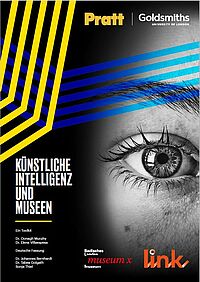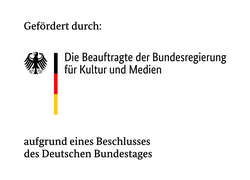Aus dem Netzwerk KI & Museum
Künstliche Intelligenz und Museen – Ein Toolkit
Welche Einsatzmöglichkeiten und Mehrwerte bieten Verfahren der Künstlichen Intelligenz für Museen? Das Themenfeld hat jüngst auch im deutschsprachigen Raum Fahrt aufgenommen, an vielen Kultureinrichtungen und Hochschulen laufen Pilotprojekte, das Thema wird in Ausstellungen und Vermittlung verhandelt, Festivals und Hackathons widmen sich der Entwicklung im künstlerischen Bereich. Im englischsprachigen Raum wurde 2019 durch Oonagh Murphy (Goldsmiths, University of London) und Elena Villaespesa (School of Information, Pratt Institute) „The Museums + AI Network“ gegründet und in Workshops ein Toolkit zur Erschließung des Themas entwickelt. Mit der Gründung des deutschsprachigen Netzwerks „KI & Museen“ lag es nahe, eine Übersetzung des Toolkits in Angriff zu nehmen und durch laufende Projekte zu erweitern. Es bietet Einblicke in den Einsatz von Künstlicher Intelligenz in Museen, unterstützt mit Arbeitsblättern bei der Konzeption eigener Projekte und erklärt zentrale Begriffe der Debatte.
Weitere Informationen:
Deutsches Netzwerk
Toolkit English Version
Englisches Netzwerk
Prof. Dr. Iryna Gurevych – Large Language Models in Museums?
Prof. Dr. Iryna Gurevych, Head of UKP Lab, TU Darmstadt
Mehr zum Thema KI & Museum: "Sense or nonsense? - What culture do we want to produce with language models?"
Holger Kurtz – (Open) AI & Kurator*innentexte
Holger Kurtz, Kulturmanager für Digitales: https://www.holgerkurtz.de
Rudolf Seising – Eine Geschichte der Künstlichen Intelligenz in der BRD
PD Dr. Rudolf Seising, Deutsches Museum München, Wissenschaftlicher Mitarbeiter, Leitung Projekt "IGGI" Forschungsinstitut für Technik- und Wissenschaftsgeschichte
https://www.deutsches-museum.de/forschung/wissenschaftl-mitarbeiter/pd-dr-rudolf-seising/
Christian Vater – Die Geschichte der KI als Automatisierung der Kopfarbeit
MA Christian Vater, Karlsruher Institut für Technologie (KIT), Institut für Geschichte, Gastwissenschaftler
https://www.geschichte.kit.edu/1933.php
Jaap Kamps: How to Empower Visitors and Curators?
The current generation of access tools in the cultural heritage domain are inspired by modern web search technology, yet those tools privilege ultra-fast look-up search for factual details and navigational needs. The design of these systems fails to address the dominant needs of online users of cultural heritage, who have no crisp factual information need but come to discover something. This difference has fundamental consequences for the design of systems that support users to explore and experience, come to learn and be amazed, and engage with the material from many different angles. It has also fundamental consequences for back office systems that should empower curators to go beyond access and object descriptions, allowing them to translate their knowledge into a rich cultural information space. Unleashing this power enables us to realize the full potential of cultural heritage by transferring its meaning or aura into the digital realm, and explore the different narratives in ways that make users be touched by the story.
Jaap Kamps is an associate professor of information retrieval at the University of Amsterdam.His research interests span all facets of information storage and retrieval – from user-centric to system-centric, and from basic research to applied research. A common element is the combination of textual information with additional structure, such as document structure, web-link structure, and/or contextual information, such as meta-data, anchors, tags, clicks, or profiles. Current interests are in “IR for social good” by working on novel access tools for cultural heritage and political data, and by developing explainable and interpretable neural models for search and analytics. He has published over 400 papers in all major conferences and journals, which can be found at
https://e.humanities.uva.nl
https://scholar.google.com/citations?user=bWlQ2uEAAAAJ
http://dl.acm.org/author_page.cfm?id=81100034443
or other repositories.


